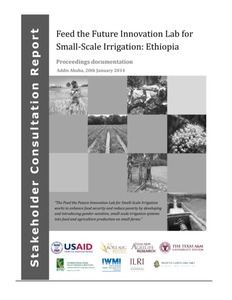Location
The International Water Management Institute (IWMI) is a non-profit, scientific research organization focusing on the sustainable use of water and land resources in developing countries. It is headquartered in Colombo, Sri Lanka, with regional offices across Asia and Africa. IWMI works in partnership with governments, civil society and the private sector to develop scalable agricultural water management solutions that have a real impact on poverty reduction, food security and ecosystem health. IWMI is a member of CGIAR, a global research partnership for a food-secure future.
IWMI’s Mission is to provide evidence-based solutions to sustainably manage water and land resources for food security, people’s livelihoods and the environment.
IWMI’s Vision, as reflected in the Strategy 2014-2018, is ‘a water-secure world’. IWMI targets water and land management challenges faced by poor communities in the developing countries, and through this contributes towards the achievement of the United Nations Millennium Development Goals (MDGs) of reducing poverty and hunger, and maintaining a sustainable environment. These are also the goals of CGIAR.
IWMI works through collaborative research with many partners in the North and South, and targets policymakers, development agencies, individual farmers and private sector organizations.
Resources
Displaying 246 - 250 of 959Feed the future innovation lab for small-scale irrigation, Ethiopia: Proceedings documentation, Addis Ababa, 20 January 2014
Climate Change, Out-migration and Agrarian Stress: The Potential for Upscaling Small-scale Water Storage in Nepal
This report explores the potential role of small-scale water storage infrastructure in two subbasins within the larger Koshi River Basin in central and eastern Nepal, yet shows that upscaling such infrastructure requires an appreciation of the other drivers of change in agriculture aside from climate (e.g., rising cost of living and poor terms of trade for agriculture). It also identifies the social relations and dynamics (distribution of land, water and labour) which could mediate the success of future interventions.
On target for people and planet: Setting and achieving water related Sustainable Development Goals
This report cautions against an overly rigid approach to the Sustainable Development Goals (SDGs), which it argues could limit development options for poor countries, particularly in how they are able to manage critical water resources. It identifies key challenges such as setting realistic targets, carefully considering the local context to address the needs of the poor, and promoting sustainable water resources development in a way that values healthy ecosystems.
The Chinyanja Triangle in the Zambezi River Basin, Southern Africa: status of, and prospects for, agriculture, natural resources management and rural development
This paper, which focuses on the Chinyanja Triangle (CT), an area inside the Zambezi River Basin, characterises three distinct farming subsystems across rainfall gradients, namely maize-beans-fish, sorghum-millet-livestock and the livestock-dominated subsystem. It presents the socioeconomic characteristics, historical drivers of change, resources use and management (water, land, forestry) and the institutional disincentives affecting agricultural production and productivity in the region.
Environmental livelihood security in Southeast Asia and Oceania: a water-energy-food-livelihoods nexus approach for spatially assessing change
This document addresses the need for explicit inclusion of livelihoods within the environment nexus (water-energy-food security). The authors present a conceptualisation of ‘environmental livelihood security’, which combines the nexus perspective with sustainable livelihoods. The geographical focus of this paper is Southeast Asia and Oceania, which the authors highlight is a region currently wrought by the impacts of a changing climate.






